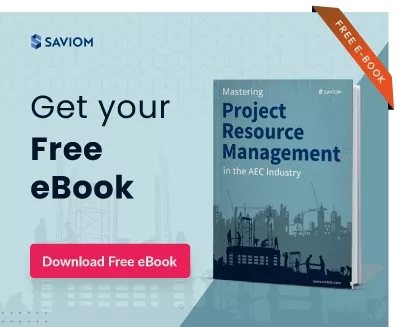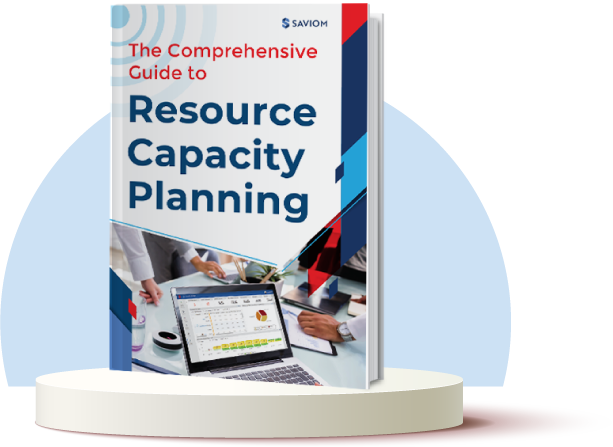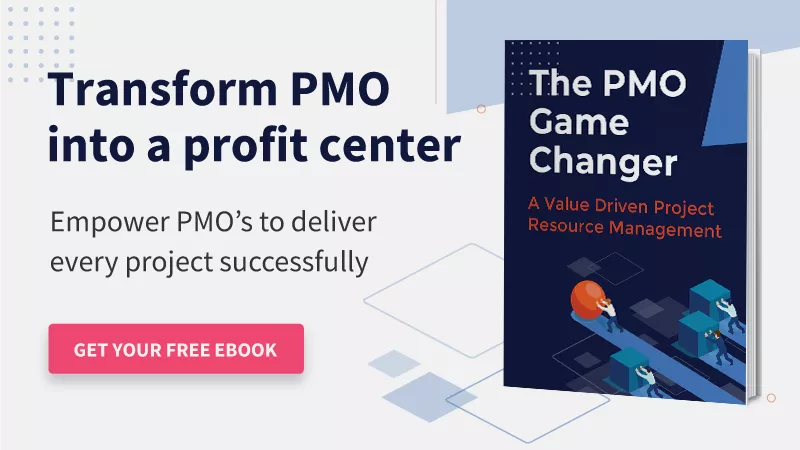Construction projects are highly structured endeavors that require meticulous planning, coordination, and execution. A well-prepared Construction Management Plan (CMP) ensures these projects run smoothly and achieve their objectives.
It serves as a comprehensive roadmap that outlines how a construction project will be executed, controlled, and monitored from start to finish. By meticulously documenting every aspect, from stakeholder responsibilities to risk mitigation strategies, a CMP enables managers to keep the project on track, within budget, and on schedule.
This blog is a complete guide on how to document and create an effective construction management plan.
First, let us get to the basics.
What is a Construction Management Plan?
A construction management plan is a detailed document that outlines the strategies, processes, tools, and resources required to complete a construction project successfully. Overall, the construction management plan serves as a handbook for managers to drive AEC projects to success.
An Example of a Construction Management Plan
The example below showcases how an initial construction management plan will look like:
Project: Building a Business Tech Park
- Scope: Develop a 10-acre tech park with office spaces, a data center, green spaces, and parking.
- Timeline: 18 months (January 2025 – June 2026).
- Budget: $50 million allocated for construction, landscaping, and facilities.
- Phases: Pre-construction, construction (foundation, utilities, interiors), and post-construction.
- Resources: Skilled workers, contractors, engineers, architects, construction equipment, and green-certified materials.
- Safety: On-site safety officer, regular audits, and emergency response protocols.
- Risks: Weather delays, supply chain disruptions, and regulatory challenges.
- Mitigation Steps: Risk assessment, backup suppliers, and contingency funds.
- Communication: Weekly stakeholder meetings and digital project tracking tools.
Though the components of any plan remain the same, the time, budget, resource utilization, and so on differ from project to project.
So, the next section will give you a better understanding of the components of a CMP.
What Does a Construction Management Plan Include?
The main components of a construction management plan are:
Project Scope
The project scope provides a detailed outline of all the work required to deliver a construction project successfully. It defines the objectives, deliverables, milestones, cost and project management approach. A well-defined project scope serves as a reference for all project stakeholders.
Timeline
A project timeline is a visual representation of the schedule for completing a project. It outlines key tasks, milestones, deadlines, and the sequence in which activities need to be completed to achieve the project’s objectives. A project timeline helps teams understand the project’s overall duration and their individual responsibilities.
Project Budget
A project budget is a detailed financial plan that estimates the costs associated with completing a construction project. It includes all expenses such as labor, materials, equipment, overhead, and any other resources required to execute the project. The budget serves as a guideline for allocating funds and resources, ensuring that the project stays within financial constraints.
Resource Requirements
Resource requirements refer to the essential resources needed to complete a project or task successfully. These resources can include human capital, materials, equipment, technology, etc. By accurately assessing and documenting what is needed at each stage of the project, managers can allocate resources more effectively, minimize costs, and maintain project timelines.
Quality Standards
Quality standards refer to the specific criteria or guidelines that define the level of quality required for a product, service, or process in a project. These standards ensure that deliverables meet customer expectations, regulatory requirements, and industry benchmarks.
Communication Strategy
A communication strategy is a structured plan that outlines how information will be shared among stakeholders throughout the project lifecycle. It specifies the communication methods, frequency, content, and responsible parties for ensuring effective information flow.
Risk Management
Risk management involves identifying, analyzing, and addressing potential risks that could impact a construction project’s success. It involves anticipating uncertainties, assessing their likelihood and potential impact, and implementing strategies to mitigate or respond to them.
Procurement, Logistics, and Site Analysis
A procurement plan outlines the process of acquiring the goods, services, or resources needed for a project. Meanwhile, logistics and site analysis work in tandem for smoother project completion. Logistics ensures that the flow of material delivery and resource allocation are streamlined, whereas site analysis and management provide detailed descriptions and access plans for the work site.
Stakeholder Management
Stakeholder management involves understanding stakeholders’ needs, expectations, and levels of influence, and developing strategies to communicate with and involve them effectively. A well-executed stakeholder management plan ensures that all parties feel heard and valued, contributing to smoother project execution and increased support for the final outcomes.
Let us now explore how important it is to have a CMP.
Why is it Important to Create a Construction Management Plan?
Construction projects are highly complex and include many variable components and interdependencies. Therefore, detailed planning is vital to ensure smooth execution and timely delivery. Here, a comprehensive construction management plan acts as a roadmap for successful project execution, clearly outlining the scope, objectives, timeline, resources, dependencies, and project budget.
A well-developed construction project plan allows firms to identify and schedule human and non-human resources (equipment, tools, facilities, etc.) cost-effectively throughout the lifecycle. It helps determine the critical path and ensure necessary resources work on high-priority tasks.
Moreover, it defines the roles and responsibilities of the project stakeholders, minimizing ambiguity. Besides, a construction project plan helps identify, assess, categorize, and forward plan for potential risks. As a result, it reduces the likelihood or impact of these events on the overall project.
Moreover, the project plan helps define quality standards, legal requirements, and regulatory compliances. This involves outlining the specific materials and their required quality standards, establishing testing procedures to ensure adherence to building codes and regulations, and conducting inspections at each project phase.
Now that the benefits are clear, let’s move on to the steps to create a plan for carrying out the construction process.
Read More: Understanding Construction Resource Management: The Ultimate Guide
How to Create a Construction Management Plan?
Given below are the steps to be followed to document a systematic and well-organized construction management plan.
Define Construction Project Scope
TBH research indicates that ‘60% of construction professionals acknowledge that unclear scope leads to miscommunication and project delays.’
The first and most crucial step in creating a construction management plan is defining the project scope. A comprehensible scope outlines the construction project’s goals and purpose, focusing on its overall value and intended benefits. It comprises the stakeholders and client’s inputs and expectations.
In addition, defining the project’s scope helps understand team member’s roles and responsibilities in detail. It also includes the project’s timeframe, financials, methods, and techniques to be employed.
Read More: What is a Project Scope Document, and How to Create an Effective One?
Perform Cost and Time Analysis
As per IJIMT research, ‘Nine out of every ten construction projects run out of funds before they’re complete.’
In construction projects, time and cost have a reciprocal relationship. Therefore, project managers must perform a cost and time analysis to evaluate the expenses related to labor, materials, equipment, and other resources while determining how long each project phase will take.
This helps managers identify potential bottlenecks and high-cost areas. With this insight, they can develop strategies to optimize resource allocation, minimize delays, and stay within budget. Ultimately, this ensures the project remains both financially and operationally feasible.
Develop a Work Breakdown Structure (WBS)
A work breakdown structure (WBS) is a deliverable-oriented breakdown or bifurcation of projects into smaller tasks and sub-tasks. It allows project managers to categorize the construction process into different phases, such as site planning, foundation, design, structural work, interiors, and finishing.
Moreover, it helps clarify what needs to be done, when, and by whom. It also aids in identifying dependencies between tasks, which is crucial for scheduling and resource allocation. A WBS is, therefore, necessary to help managers track the project’s progress at every stage and implement corrective measures in case of discrepancies.
Read More: Effective Ways to Create a Work Breakdown Structure
Estimate Resource Requirements
Once the WBS is in place, the next step for project managers is to create a resource breakdown structure (RBS). This structured approach outlines the types, quantities, and quality of human and non-human resources needed for each construction project phase and activity.
It also includes a timeline indicating when and how long each resource will be required. To accurately assess the project resource requirements, managers can use various forecasting techniques or leverage past lessons learned reports. The RBS helps avoid delays due to labor shortages and ensures the project stays within budget.
Set Quality Standards for the Project
Next, project managers must develop a comprehensive Project Quality Plan (PQP) that clearly defines the quality standards and procedures. It must include the steps for implementing stringent quality control measures at each stage of the project lifecycle.
It should also set clear benchmarks for materials and workmanship to ensure that the project meets the client’s expected quality standards. A PQP must outline the methods and frequency for regular site inspections and materials testing to verify compliance with established standards. Moreover, it should specify the corrective actions that must be taken in case quality issues arise.
Create Communication Protocols
According to Autodesk, “ a staggering 52% of rework in construction is attributed to poor project data and miscommunication.”
In the following step, construction project managers must create a well-structured communication plan to ensure critical project information is shared effectively among relevant stakeholders. First, they must develop a stakeholder map to identify all parties involved in the project.
Then, they must establish the communication modalities (synchronous and asynchronous) and their frequencies to ensure seamless collaboration and avoid information overload. Project managers can also opt for a software solution to streamline communication.
Conduct Risk Assessment & Create Mitigation Strategies
A construction plan must have a detailed risk management framework. These measures minimize the likelihood of cost and schedule overruns. So, project managers must create a risk matrix to identify, assess, and categorize potential risks. Based on this analysis, they must create appropriate contingent strategies to mitigate the risks.
Furthermore, they must assign risk owners responsible for managing and addressing the critical risks. This systemic approach promptly addresses emerging issues and prevents project delays or failures.
Read More: Enterprise Risk Management Framework: 8 Core Components
Plan for Logistics and Site Management
The next step of the process is to develop a detailed logistics and site management plan. In the logistics plan, managers must outline how materials and equipment will be efficiently acquired, transported, allocated, stored, and managed throughout the construction project.
On the other hand, the site management plan must clearly define the SOP for managing daily operations, overseeing construction staff, and coordinating logistics. It should also clarify the safety, waste management, and workforce coordination protocols that construction personnel must adhere to ensure successful project delivery.
Seek Stakeholders Inputs & Approvals
The final step is to obtain stakeholder feedback and consent. Once the construction management plan is complete, it must be presented to the project stakeholders for their approval. If they suggest any changes, those will need to be implemented. Once approved, the construction management plan can be executed.
Moreover, addressing stakeholder concerns early on can lead to a more streamlined execution of the construction plan. Securing necessary approvals at each stage ensures compliance with regulations and minimizes delays. Ultimately, effective communication with stakeholders enhances collaboration and sets a strong foundation for project success.
Read More: Who are Project Stakeholders, and How to Manage Them Efficiently?
Enlisted below are some tips and tactics for project managers to effectively plan construction projects.
Additional Tips to Create a Construction Management Plan
The construction industry projects demand a detailed plan to ascertain that no factor or attribute is overlooked. A shift in one factor can cause a ripple effect that can potentially derail the project. The above-mentioned constituents and steps will help you formulate a systematic plan and lead your project to succeed.
Below are some additional tips to add glory to your plan:
- Encourage and promote open communication and collaboration. Ensure all communications are well-documented and carefully stored in a centralized repository to make them accessible from anywhere.
- Use effective project resource management software to gain 360-degree visibility of the enterprise. This will help you track progress at all times.
- Time and task management are two essential components to ensure project profitability. So, managers must plan and allocate the workforce efficiently to avoid sub-optimal utilization and deadline delays.
- Safeguard your project data by investing in secure software and creating a backup at regular intervals. Losing this data can have a catastrophic effect on the project’s progress.
- Review and improve your plan every time. A construction management plan is always a Work in Progress. Based on the changing factors, keep updating the plan to enhance efficiency.
- Project managers must refer to the lessons learned reports to improve their project planning process.
What steps do you follow to design a detailed construction management plan for your firm?
Read More: Essential Project Management Tips for Beginners
The Glossary
Read More: Glossary of Resource Workforce Planning, Scheduling and Management













